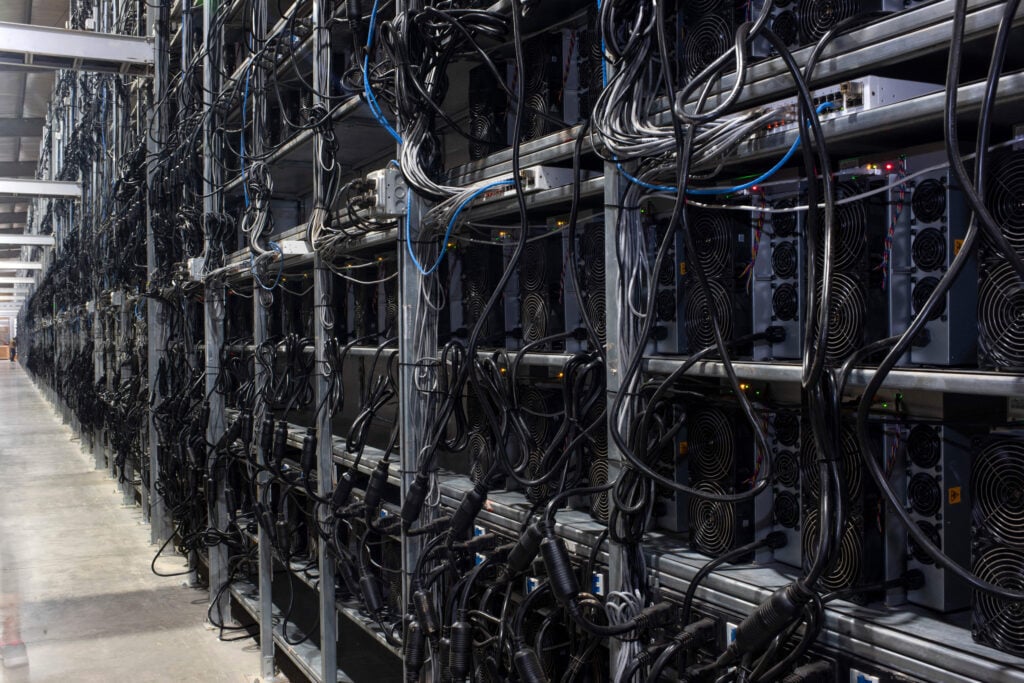Better late than never, I suppose.
The economics of Bitcoin mining at scale force it to find an equilibrium where the cost of mining a Bitcoin is just a bit less than the current market value of a Bitcoin.
Electricity is the only significant variable cost at scale so the amount of electricity needed to mine a bitcoin ends up being a little less than however much a bitcoin can buy.
Thus one can estimate the total amount of electricity very accurately by simply taking the block rate (6/hr) times the block reward (~6.25 BTC) times the current price of a bitcoin divided by the wholesale price of electricity. You’ll get the upper bound for the amount of electricity being consumed.
Which by the way works out to around a TWh costing tens of millions of USD every single day. Which is more electricity than a small country
The only thing that will stop the waste is if the price of bitcoin drops. You can legislate it away, that won’t stop it, it will just move when it’s happening.
the current price of a bitcoin divided by the wholesale price of electricity.
Doesn’t this formula assume that electricity costs the same everywhere at that particular moment? The wholesale price of electricity can vary significantly across different parts of national grids, and certainly can vary significantly between countries, especially countries whose electricity prices are denominated in different currencies.
And then the actual end user price of the electricity can be hedged with futures and other options/contracts/securities, to where two people using power from the same grid are paying very different prices. And once you introduce financial instruments, the bottom line cost might depend on stuff like interest rates or other financial/economic conditions local to that place.
Yes somewhat… the formula has several factors that are constantly in flux, Bitcoin mining is a random process the value can be off entirely by chance. But it’s designed to self-adjust over the long run towards that formula, individual fluctuations cancel out in the long run.
For electricity price specifically, wholesale prices of electricity tend to be fairly close everywhere bitcoin is mined. Bitcoin mining is more profitable where electricity is the cheapest and is uneconomic in places where the price of electricity is above average. So it only happens where the wholesale price is globally competitive.
But wholesale prices shift significantly by time of day, especially in the spring and fall. California’s wholesale prices dipped to the negatives during the days this past spring, hitting -$26/MWh at one point in April. One can imagine projects that only mine when energy is cheap or Bitcoin is expensive, in places that can take advantage of that price volatility.
There are also a few projects that don’t rely on grid electricity because they’ve provisioned their own energy sources (one creative solution is a shipping container with a data center powered by waste flaring of natural gas at oil wells).
So I’d think the price volatility would make it hard to derive a meaningful calculation of energy use from real-time electricity pricing, rather than real-time computational complexity.
You’re not wrong.
Wholesale prices do bounce around significantly in a day, occasionally even going negative. And some miners do shutdown for brief periods during high demand due to a high electricity price. Some miners aren’t buying electricity from the grid, and have their own generation sources with different economic inputs. And there’s lots of day to day volatility in mining rates that has nothing to do with economics.
There’s no formula or methodology that could tell you how much energy is being wasted at any given moment. That impossible. There’s no way of knowing how many miners are operating globally at any given point in time. We can’t even reliably tell which country a block was mined in. We can only make reasonable estimates of global averages over the last few weeks.
You can get closer with more detailed modelling, but the equation I gave using global averages for bitcoin and electricity prices in the last few weeks will get you to an accurate estimate.
We all know the answer - too damn much.
Should gather data on how many useless and overbugeted government agencies exist, and how to return that money to the taxpayer.
Why? If people paid for the electricity then what’s the problem?
“what do you mean environmental impact, if people paid for the gasoline then what’s the problem?”
Why police how people use electricity? That’s not the problem, the people burning coal and natural gas are the problem.





